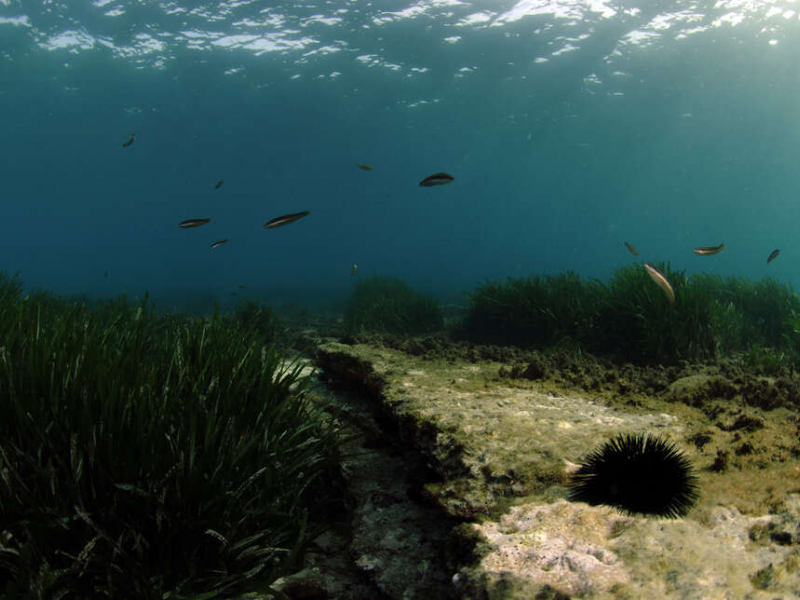A global partnership for establishing marine protected areas as a key tool in the response to the climate crisis
Ahead of the UN conferences on climate change (COP 26) and biodiversity (COP 15) later this year, France, Chile, Costa Rica, the UK and the US announced today a new global partnership to promote the role of marine protected areas as a nature-based solution to climate change.
The International Partnership for Marine Protected Areas, Biodiversity and Climate Change will work with world leaders, scientific support from representatives of the International Union for Conservation of Nature (IUCN) and the Scottish Marine Alliance for Science and Technology (MAST), to ensure they have the information and tools they need to understand the contribution of MPAs, and the biodiversity they protect, as solutions to help mitigate the effects of climate change on the ocean.
The national agencies represented in the partnership are: the Joint Nature Conservation Committee (JNCC), supported by Defra, UK; the Ministry of the Environment, Chile; NOAA and its Office of National Marine Sanctuaries, USA; the Ministry of Energy and Environment (MINAE), Costa Rica; and the French Biodiversity Agency (OFB) in France
According to Pierre Dubreuil, General Director of the French Biodiversity AGency (OFB), "In view of the international meetings, the year of 2021 offers a crucial opportunity to tackle the dual crisis of climate change and biodiversity loss. We call on the international community to recognise the essential role that marine protected areas play in providing tangible solutions to our climate crisis and for the many services that a healthy ocean provides to all of us.
Every country rely on healthy marine ecosystems to sustain life on this planet. Marine protected areas (MPAs) can be effective nature-based solutions to climate change. States must act now to protect key ocean habitats and the services the ocean provides to nature and human societies."
Essential International Cooperation
As the Earth's temperature rises, climate change and ocean acidification are having a severe and rapid impact on species, ecosystems and people around the world, threatening food supply, coastal protection, individual livelihoods and sustainable economic development.
While enhanced greenhouse gas (GHG) reduction targets are essential to protect the oceans and avoid further irreversible impacts, MPAs are increasingly recognised as a key tool for maintaining and restoring ecosystem resilience in a changing climate, providing positive outcomes for biodiversity. Marine protected areas can protect habitats that serve as blue carbon, including salt marshes, seagrass beds, mangroves and seabeds, which provide long-term storage of atmospheric carbon. They also maintain biodiversity and provide many ocean and coastal ecosystem conveniences. These include protection against storms and erosion, food production, as well as income generation for coastal communities, leisure and tourism. Well-integrated MPA networks can increase species survival by allowing them to move and escape certain pressures.
International cooperation is essential for achieving the benefits that MPAs can bring to the climate. Members of the partnership are committed to exploring synergies, exchanging knowledge and expertise, and working together to fill gaps in scientific knowledge in order to raise awareness of the role of marine protected areas as a climate change tool by COP26. The partnership has launched a website www.mpabioclimate.org with tools and case studies on MPAs. It will hold webinars in each partner country on the role of MPAs in addressing climate change impacts and conserving biodiversity.
Some figures on MPAs:
As part of the High Ambition Coalition for Nature and People, the scientific community is calling for a protection target of 30% of the land and 30% of the sea by 2030, of which 10% should be in high protection areas. The global database lists 18,983 MPAs around the world. In France, the National Strategy for Protected Areas (SNAP) already includes this ambition. In 2020, the national network covers 23.5% of French waters, i.e., 547 marine protected areas (MPAs) in Mainland and Overseas France. The OFB, through its role as manager of protected areas, is a direct player in the implementation of this strategy, with the ambition of being a role model.
- High ambition coalition
- Special Report from the Intergovernmental Panel on Climate Change (IPCC) "The Ocean and Cryosphere in the Context of Climate Change"




